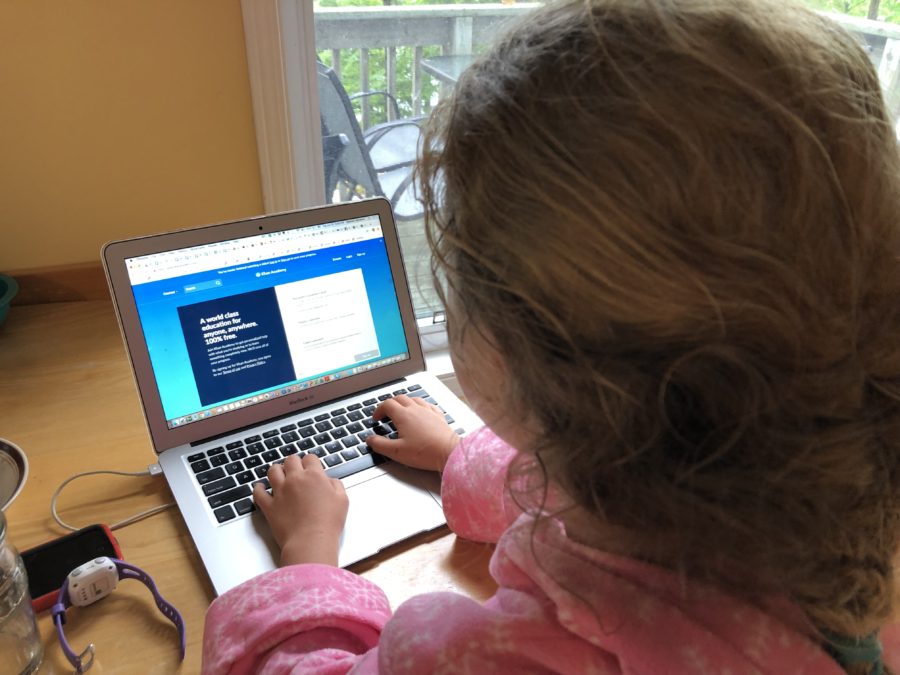I had a wonderful chat with the owner of a small hotel in Baddeck, Nova Scotia. This small motel found on the side of the Trans Canada highway was sold out and I was informed that that was the case for most of July and August. She had owned the business for over 30 years and talked about the moment that everything changed. Over 20 years ago she was at a convention for tourism Canada and this group called Expedia presented on how people were going start to book online in advance for rooms.

At the time she laughed, as did most of the other participants, thinking these guys were crazy. No one is going to trust booking a room online, putting their credit card online and certainly not to a third party company they don’t know. How times have changed… Expedia is a massive disruptive innovator who forced the industry to change whether they liked it or not. I can say it was certainly comforting for us to know we had rooms secured on the very busy Cabot Trail and to know what it looked liked, what people thought about it, and exactly what to expect. That being said it has also been fun to have what we call “mystery nights”.

The kids get so very excited about the mystery nights. We don’t know where we are staying and just go find a place. Have we lost this sense of adventure a bit? Do we have an overwhelming feeling now that it must all be sorted before we go?
Education is no different in how it responds to disruptive innovations. The dinosaurs in education that hang on to what was, just because it’s what was, get poked by disruptive innovation all the time. Clearly the biggest in my lifetime is Web Searching. Any piece of knowledge is available at our fingertips in real time with wifi or a data plan. Certainly most places we have been on this trip give free access. What does this mean for formal education?  We are all still wrestling with this as we spend more time figuring out how to block things online than how to navigate drinking from the firehose of information. A teacher is no longer the sole fountain of knowledge along with the textbook. My kids first inclination when seeing things and wondering is to search it up. We were arriving in PEI and they noticed the license plates say the home of confederation on them, the kids wondered what that was, “Lets search it up”. Why is the soil red? “Lets search it up”. We are also asking more questions and encouraging them to ask more questions before the “search it up” step. What do you think could make the soil red? What is different here in PEI and on the mainland that could cause that? What are your ideas? What are your questions?
We are all still wrestling with this as we spend more time figuring out how to block things online than how to navigate drinking from the firehose of information. A teacher is no longer the sole fountain of knowledge along with the textbook. My kids first inclination when seeing things and wondering is to search it up. We were arriving in PEI and they noticed the license plates say the home of confederation on them, the kids wondered what that was, “Lets search it up”. Why is the soil red? “Lets search it up”. We are also asking more questions and encouraging them to ask more questions before the “search it up” step. What do you think could make the soil red? What is different here in PEI and on the mainland that could cause that? What are your ideas? What are your questions?
How should schools respond to such disruptive innovation? How many school assessments allow full access to online resources? Think about that for a minute, are we creating assessments that align with how the world works in this day and age? How many jobs block access to the online world? I loved a learning activity that our innovation class was doing in Middle School at Maya. They were learning how to learn to do something practical that they have never done before by searching for free learning online. How do we do that efficiently, DIY projects, self guided learning etc. Don’t get me wrong, we still need to acquire knowledge in our learning journey. It is great that Finley and Grace can name the provinces of Canada now and can remember what evaporation is and how important it is in many aspects of the water cycle. (We were talking about sweat and why we sweat as humans).
Our friends at Wikipedia say Disruptive Innovation refers to a technology whose application significantly affects the way a market or industry functions. What are your favorite disruptive innovations? How has it driven and how should it drive the future of K-16 education?



Great post!
I used a video—NOVA: Becoming Human Part 2—to introduce a more holistic unit on states of matter. One of the lessons covered energy dynamics as liquid H2O transforms to gas. The video explains how sweating enabled persistence hunting and a larger supply of calories; this allowed human brains to grow larger over the last several hundred thousand years.
I think the PBS NOVA Library is on Netflix.
Here’s an excerpt from the episode description:
“The program examines an intriguing theory that long-distance running–our ability to jog–was crucial for the survival of these early hominids. Not only did running help them escape from vicious predators roaming the grasslands, but it also gave them a unique hunting strategy: chasing down prey animals such as deer and antelope to the point of exhaustion.”
Finley and Grace say, Wow! That’s super cool to learn that the ability to sweat helped our brains grow over time. Finley is wondering how these early humans could run prey down and how did they kill them? Grace is thinking that being fast maybe isn’t the most important but being able to run long enough.
Thanks for the comment and great Netflix recommendation.
Animals that don’t sweat might be able to run faster, but they can only go so far before they must stop and cool down—they go into a kind of heat shock, paralysis. Then, humans could simply use a blunt instrument to kill them and have enough food to feed a family, or even a clan, for several days. It was a process that took a day, or more, and the cooperation of several people, but it was effective, and clever.
My favorite disruptive force in education right now is the Duolingo English Test, which is emerging as an alternative to the TOEFL and IELTS. The cost and geographic limitations in the availability of English proficiency testing were keeping qualified HALI (high ability, low income) students from accessing higher educational opportunities. Duolingo is changing the game by producing a test that allows students to test anytime from almost any computer for 1/4 the cost of TOEFL or IELTS. It’s a game changer. (Fingers crossed that someone can find a way to similarly disrupt SAT/ACT!)
Access for HALI students may not be in the interest of the perpetuating cycle of privilege. I love the disruptors who force this bubble to flex and perhaps burst. The creator of Duolingo is from Guatemala and has made significant impact on his own country and globally. Would love to hear your thoughts on SAT/ACT alternatives as it really is a limiting factor. Again, those who can afford to play the game paying thousands for support and tutoring have a much higher rate of success for entrance. I always question what is most important to learn in High School? Can that be externally assessed? Critical thinking? Resilience? etc? Great to hear your thoughts Sarah.
Living in Venezuela may have ups and downs, but one thing we cannot count on is wifi or data plans. At any given time this luxury may go out… what we are experiencing now is a reverse disruptive innovation. We are actually seeing more conversations in the classroom, exposing ideas, debating, and finding solutions to challenging questions. This think tank approach allows students to “think” before they research as you mentioned above. Naturally, it has created a design-thinking atmosphere in a few of our classrooms whereas students and teachers are implementing inquiry-based strategies, fostering ideas, and solving today’s challenges.
Love the balance and wonder how we can create this in conjunction with highly connected classrooms and schools. I think it’s part of learning how to drink from the firehose that is the internet. So much wasted time on rabbit hole searching, when some targeted questioning and pre thinking would help tremendously. Love a school that has a design thinking culture! Thanks for sharing Kevin and stay strong in Venezuela!
The multitude of disruptors out there are enormous. Call them what you want – disruptors innovators, evolutionaries, technology, etc… There are two things that I would like to propose that may not be disruptive to education yet transformative and valuable to/for learning. The first is implementation of research into the practices and pedagogy of education. Schools have evolved – best practices, high yield strategies, differentiation, alternative pathways to learn, online learning – name what you want, each has been a disruptor in its own way from the stand-and-deliver/sit-and-get practice, from the “Teacher owns the learning” mentality, or from the “Learn these facts to succeed” stance. There are so many old school methods. This is not to say that all schools and educators have changed. There is still more to do. My other thought about a disruptor goes back to the idea of learning through individual discovery, individual research and independent thinking. Education is filled with tech and talk. Both are quite valuable yet at times both overrun classrooms. If we limit technology and collaboration to actually allow for deeper thinking and give teachers skills to set up environments of inquiry and better questioning, we then can immerse ourselves/children in a new, old or emerging interest that opens our mind and gives us ample time to formulate independent thought. Too often, opinions are formed through collaboration and group-think. So I propose that time….actual quiet, uninterrupted, quality time to think, process, and learn be a disruptor to 21st century education.
Such an important and often lost practice, think time…
I completely agree that this practice by educators can be very powerful to create next generation thinkers and doers. It is a skill to set a culture of this nature in a classroom and it can be learned most definitely. Avoiding group think is even more important today with the hyper connected social media that exists as it pushes opinion towards you based on clicked preferences and searches. Like the comment from kevin in this thread, a fine balance is needed. Joe, have you used liberating structures? try some of these protocols to avoid group think, hear all voices, tackle gnarly issues etc. It’s free! http://www.liberatingstructures.com/ls/
This may not be right on the subject, but I went to training called Responsibility Centered Discipline. Their premise is to stop putting kids into in school suspension or out of school suspension as much as possible. They believe that we need to teach the appropriate social skills to kids and help them see their benefit to pursuing that. They have positive results in public/private schools and prison systems. Even at Maya, there were so many students with a lack of resilience.
I had an aha moment when the presenter shared about things like self-control, patience and resilience, which many of our kids lack today, regardless of SES. He then discussed people in the recent past who had so many ways to develop those attributes that were just intrinsic to being a human being. For example, if you liked the song on the radio you had to listen again and again and again until you were able to hear that song again, and maybe if it was a good day you were next to your cassette player and you could record it. It was your motivation to get that song so you were willing to do anything, except purchase the record because you didn’t have the money. Pre Uber, my boys had to ride their bikes places they wanted to go. They even mailed letters to girls they were interested in, and waited for their response. These are just a few examples of many that no longer exist in our society. It effects our kids in a very dramatic way, especially in the classroom. As an older educator, I believe this disruption of instant information and access has to be addressed. We can no longer just putdown the people who do not limit their children’s access to electronics. We have to make huge changes in the educational system that embraces the changes in society. Unfortunately, the innovators like Mike and others are in the same place as the inventors of old. Why do we need a lightbulb? Who cares about a horseless carriage? The world has worked just fine without these things all along! As we know from history, change will happen, whether we like it or not. The slow moving beast called education, will take a long time to fully accept the electronic disruption. But I am confident that with the young explorers of change like Mike and friends and the even younger teachers (digital natives) starting out, that we can see large scale change happen in my lifetime.
Thanks for the thoughts Robin. Food for thought indeed about the rapid nature of communications and need for instant gratification. It certainly does have a major impact on our young people, for good and bad. We do have the research surrounding the use of electronics, social media etc and in many cases choose to ignore it as it seems the easier path. We are already having conversations with Grace and Finley about smart phones and have been clear they will not have one until at least grade 8. Tough parenting decisions need to be made to keep our kids safe and healthy but I often find the easier path being taken to avoid the confrontation. It’s not helping their resiliency for sure.
Our job as educators has changed so much as those lessons that used to be learned at home no longer happen there and now it’s schools job to help them learn these skills and character traits, like sharing…
You are right on the mark Mike. Every sector of the economy is being fundamentally transformed by technology yet for some reason many of us in schools, “the best 19th-century institution in existence,” cling onto our past. I believe the students who are entering our schools today, perhaps even our middle schools, are the last generation to attend traditional schools and especially universities. We need to shift our focus to teaching how to learn and then the rest will unfold through technology. We can’t teach knowledge, nor even skills to prepare these kids for a future uncharted, just teach them to be voracious learners, master, adaptable, quck on their feet learners.
You are right on the mark Mike. Every sector of the economy is being fundamentally transformed by technology yet for some reason many of us in schools, “the best 19th-century institution in existence,” cling onto our past. I believe the students who are entering our schools today, perhaps even our middle schools, are the last generation to attend traditional schools and especially universities. We need to shift our focus to teaching how to learn and then the rest will unfold through technology. We can’t teach knowledge, nor even skills to prepare these kids for a future uncharted, just teach them to be voracious learners, master, adaptable, quick on their feet learners.
Thanks for the thoughts Rob. How do we make space for such learning? How can we let go of low leverage learning experiences? How do we dance with the external systems links to ensure we don’t limit kids in a system that still exists, whether we agree with it or not?